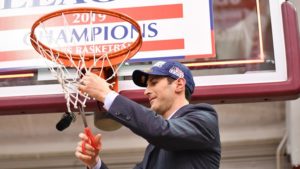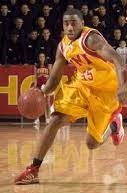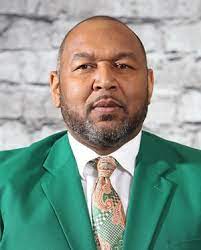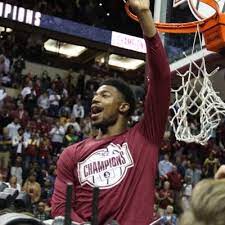We are keeping our fingers crossed in the hope that we can return to a “normal” version of college basketball this fall: fans in the stands, announcers without masks, etc. Nobody knows exactly what is going to happen but we will try to restore some order with season previews featuring the best players/coaches in the country. We continue our coverage with Colgate assistant coach Dave Klatsky. HoopsHD’s Jon Teitel got to chat with Coach Klatsky about his own podcast and his expectations for this season.
You played at Penn for Coach Fran Dunphy: what made him such a great coach, and what was the most important thing that you ever learned from him? He is a legend! A lot of what we do at Colgate comes directly from him: we have 3 alumni on our staff (including Matt Langel/Mike Jordan) and have each taken nuggets from him. He had a great ability to motivate his players to be their best without being degrading: we wanted to do well for him and the team.
As a sophomore in 2001 you set a school record with 162 AST: what is the key to being a good PG? We think about that often. I think it involves more than just passing: you need to be a leader on the court and an extension of your coach. You need to get your teammates involved while also realizing that sometimes the right decision is to score. If you can make good decisions then you will be a good PG.
You played in 3 NCAA tourneys during your 4 years of college: what is the biggest adjustment that mid-major schools have to make when facing a power-conference school in March? There is not 1 specific thing: a lot of it depends on who you are playing. When Colgate played Tennessee in 2019 I thought that taking a lot of threes would be our big advantage and give us the best chance to win a game, although even good-shooting teams can have bad-shooting games. When we played Arkansas last March it was a little different and we just decided to play our game, which worked well until they woke up. If we played the Razorbacks 10 times then I do not think we would need to change up too much to have a chance to win. As a mid-major you need to figure out where on the spectrum your chances lie and then decide whether to make it a high-variance game.
Your only regular season loss last year was by 2 PTS to Army: how close did you come to going undefeated? I think the loss helped us, as crazy as that sounds. After the loss it was so easy to get the guys focused for every single game. The previous afternoon we had beaten Army by 44 PTS so our guys got a little too comfortable. You never know what is going to happen. We were pretty close but I do not know if we would have been that close had we been able to beat Army.
Last year your team was #3 in the nation with 40.3 3P% and #1 in the nation with 26.4 3P% allowed: what role does the 3-PT line play in your team’s philosophy on both offense/defense? It is instrumental in both. On offense we want to get great shots so we spread the court and allow for drives/kicks or drives/scores. We do not have a specific # of threes that we are trying to shoot: we are going to get our shot, which is the best shot possible (ideally a layup/dunk). We are a really good 3-PT shooting team because we have really good shooters and take really good shots. If you shoot threes then you better have guys who can make them! On defense we know that open threes are statistically valuable so we try to limit catch-and-shoot threes and force our opponents to take the toughest shots possible all of the time. We are not too focused on the 26.4% # because we had big leads in a few games and our opponents took a lot of threes due to circumstances. I hope we can replicate it this year…but am not banking on it.
In the 2021 NCAA tourney you lost to Arkansas: what did your team learn from that loss that you think will help them this year? We came into that game super-confident and jumped on them (the Raiders led 33-19 late in the 1st half). What our guys learned is that things can quickly change: Arkansas forced us into 22 turnovers, which is unheard of for us. We tried to prepare our guys but you cannot replicate that type of pressure in practice and we did not play any teams all year who did that to us.
You host a podcast called “Stat Chat” (https://podcasts.apple.com/us/podcast/statchat-dishing-it-w-dklats/id1228435713) where you discuss how different programs use advanced statistics: why are they so important, and what are some of your favorites? My mind works in numbers and I also love basketball. The numbers can validate a lot of your intuition or can disprove what your eyes are seeing, both of which can help you become a better team. I am obsessed with shot selection as well as rebounding on both ends. We have learned who should be taking which shots and that we should be crashing the boards more because we get a lot of points off of offensive rebounds. My favorite podcasts are the ones that go into detail on those things.
2021 conference POY Jordan Burns has graduated but you return each of your other top-7 scorers: how crucial will all of that experience be to your team’s success this year? Really crucial. So far in the preseason it has been like no year we have ever had because we are basically returning our entire team. It is only September but it feels like we are already a well-oiled team that is really motivated/prepared. It could be a really special year if the guys can figure out their roles and do their jobs. That being said, we are not the only team who returns a deep roster so everyone across the country will be better. I do not know the exact numbers but you are essentially replacing something like 400 freshmen with 400 5th-year seniors so the overall talent pool means that there will be games played at a very high level.
Your wife Abby was a 1st-team All-Big East field hockey player at Providence: who is the best athlete in the family? You are trying to get me in trouble so I will not answer that 1: the people who know us best know the truth!
What are your goals for this season, and what are your expectations for this season? Our goal every year is to win the Patriot League and get back to the NCAA tourney. You always have to think big and have lofty goals to be a mid-major team like Loyola-Chicago: they were a joy to watch and even won a pair of games in the NCAA tourney.








